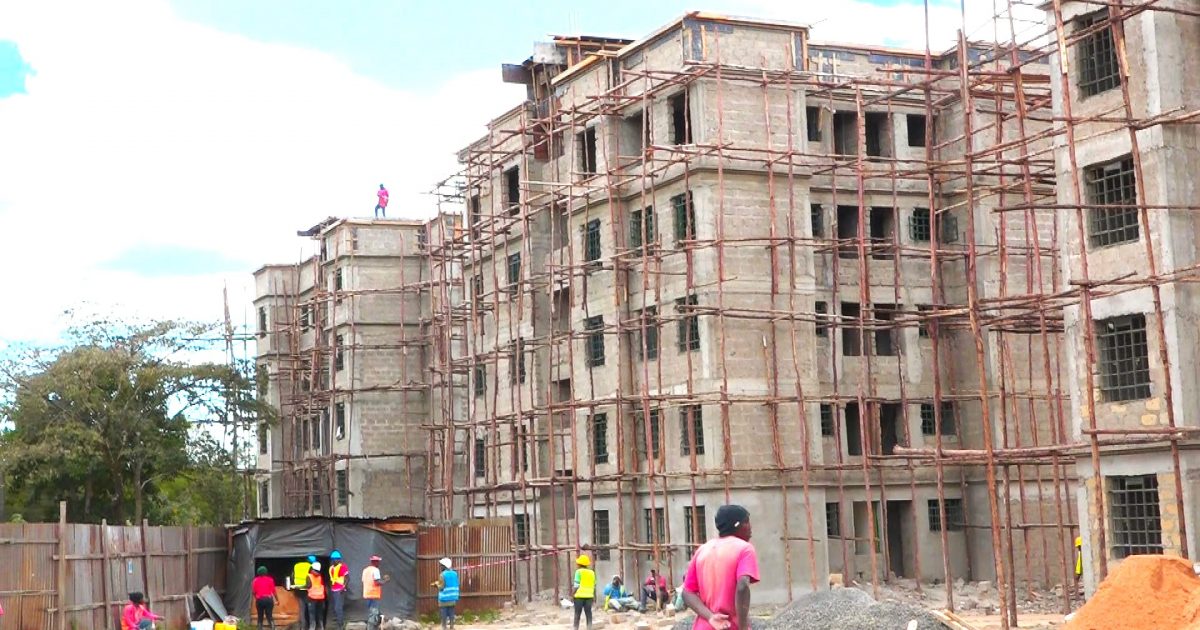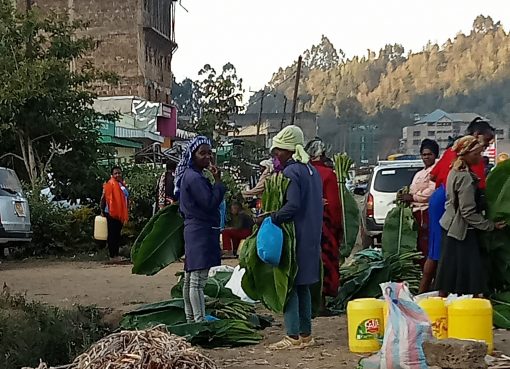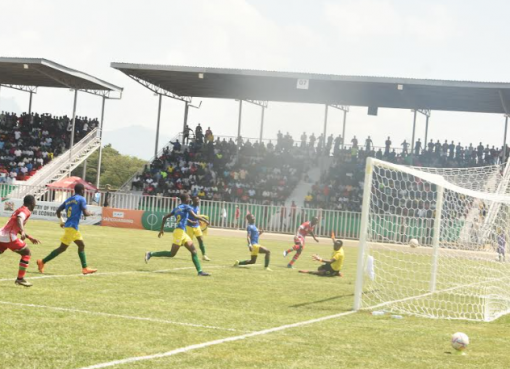The project, which was launched in January this year by President William Ruto, has enabled more than 200 people to earn a living at the construction site daily.
The Sh505 million Nanyuki Affordable Housing Project, which has 200 units, is a lifeline for the Jua Kali artisans, plumbers, electricians, masons, and vendors, among others, aimed at bolstering the business ecosystem in the county through the government’s Bottom-Up Economic Transformation Agenda (BETA).
Philis Kanana, a food vendor at the multi-million Nanyuki Affordable Housing Project (AHP), who has been operating for the past nine months, lauds the initiative for transforming the lives of residents where traders have a steady flow of customers from the construction workforce.
Kanana reveals to KNA that since she started working at the project, which sits on 5 acres, her profit has tripled thanks to the AHP initiative.
“I was allowed to construct a hotel here at the AHP site to enable me to cook for construction workers, and it has helped me take care of my grandchildren. I give workers food on debt, which they pay every weekend after receiving their dues,” the 53-year-old notes.
Additionally, Kanana, who is a grandmother of two, notes that initially she operated a kiosk near the AHP project, and with her food vending business she was able to educate her grandchildren.
“I make up to Sh10,000 every weekend, and I can attest that earnings are better compared to what I used to get initially. I urge the government to consider me to continue preparing food when phase two kicks off; it’s a boost to my family,” she adds.
Kanana is among over 140,000 people benefiting through AHP through job creation countrywide.
Joyce Njoki, a worker at the Nanyuki AHP, acknowledged that the project enabled her to earn a living through honest means as opposed to engaging in criminal activities.
“Construction has really helped despite the fact that I work amidst men, but they support me. It’s better doing this job, which is tiring, rather than engaging in bad activities,’’ she points out.
Youth working on the project are unanimous that they are busy and have no time for idleness, which could result in alcohol and narcotic abuse.
“I am happy as a youth because I work and get money, and since most of the time I am working, I don’t have time to think of outlawed activities. I am glad the government came up with such a project; as youth, we are benefiting a lot,” notes Peter Njoroge.
Apart from job creation, engineer-in-charge of Nanyuki AHP Patrick Njiru reveals that they have offered training and internship opportunities for more than 100 technical and vocational training students since the project began.
He points out that the project, which is at 65 percent complete, has studio units, one, two, and three bedrooms, which have already been booked at over 70 per cent through BOMA Yangu portal.
The government commits to construct affordable and decent houses with a target of 200,000 units annually aimed at creating job opportunities for youth and at the same time providing decent living standards for the low-income earners in the country, besides bridging the housing demand gap.
By Muturi Mwangi and Ilhan Kullow





